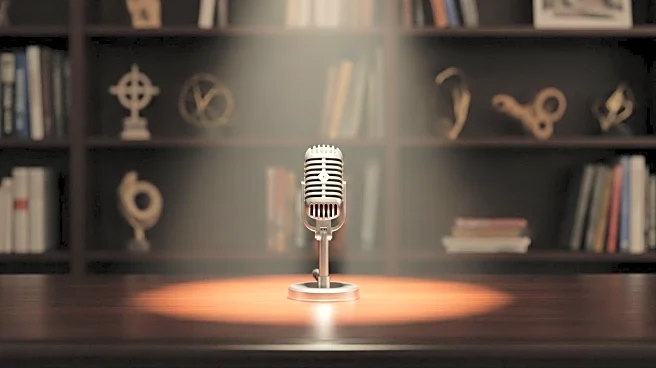What's Happening?
Keira Knightley, who is set to voice Professor Umbridge in the new 'Harry Potter' Full Cast audiobooks, has responded to fan calls for a boycott due to J.K. Rowling's controversial views on transgender issues. Knightley expressed that she was unaware of the boycott and apologized for any offense caused. The boycott stems from Rowling's outspoken criticism of transgender ideology, which has led to significant backlash and a rift between her and the cast of the 'Harry Potter' films. Emma Watson, who played Hermione Granger, has previously criticized Rowling's stance, while maintaining that she treasures her past experiences with the author. Despite the controversy, Knightley hopes for mutual respect among differing opinions.
Why It's Important?
The controversy surrounding J.K. Rowling's views on transgender issues has significant implications for the 'Harry Potter' franchise and its associated media. The calls for a boycott of the audiobooks highlight the ongoing tension between Rowling and the fanbase, as well as the cast members who have distanced themselves from her views. This situation underscores the broader societal debate on transgender rights and the impact of public figures' opinions on their professional endeavors. The potential boycott could affect sales and the reception of the audiobooks, reflecting the power of consumer activism in response to social issues.
What's Next?
As the audiobooks are released, it remains to be seen how the boycott will affect their success. Stakeholders, including publishers and cast members, may need to navigate the public relations challenges posed by the controversy. The situation could prompt further discussions within the entertainment industry about the responsibilities of creators and the impact of their personal views on their work. Additionally, the ongoing debate may influence future projects related to the 'Harry Potter' franchise, as well as the involvement of cast members who have publicly disagreed with Rowling.
Beyond the Headlines
The boycott calls against the 'Harry Potter' audiobooks reflect a deeper cultural and ethical debate about the influence of public figures on social issues. The controversy raises questions about the separation of art from the artist and the extent to which personal beliefs should impact professional collaborations. It also highlights the evolving landscape of consumer power in the digital age, where social media can amplify calls for accountability and change. This situation may contribute to long-term shifts in how audiences engage with media and the expectations placed on creators regarding their public statements.








